Frederica Freyberg:
I’m Frederica Freyberg. Tonight on “Here and Now” a First Look at Wisconsin Congressional response to President Trump’s Tuesday night address. Representatives Pocan and Grothman are here. After that a Closer Look at relationships between Wisconsin law enforcement and undocumented immigrants in the state. It’s “Here and Now” for March 3rd.
Announcer:
Funding for “Here and Now” is provided in part by Friends of Wisconsin Public Television.
Donald Trump:
Everything that is broken in our country can be fixed. Every problem can be solved. And every hurting family can find healing and hope.
Frederica Freyberg:
A First Look tonight at a new tone from President Donald Trump in his address to Congress. We’ll speak with Second District Congressman Democrat Mark Pocan later in tonight’s program. Joining us now is Republican U.S. Representative Glenn Grothman of the Wisconsin’s Sixth District. He joins us now. Thanks for being here.
Glenn Grothman:
Glad to be on “Here and Now.”
Frederica Freyberg:
Now obviously we saw a different kind of Donald Trump in his address to Congress. Did you like it?
Glenn Grothman:
Yeah. To be honest I talked to Donald Trump several times during the campaign. This is the Donald Trump I was more familiar with. Obviously there’s The Apprentice Donald Trump and he’s transitioning from the star of The Apprentice to president of the United States. I think this is the Donald Trump we’ll see pretty much from here on out.
Frederica Freyberg:
On this news item, what is your reaction to the recusal of Attorney General Sessions who will not participate now in any investigations into Russia’s interference in the presidential campaign?
Glenn Grothman:
It seems as though they caught Claire McCaskill critical of this in a little bit of a fib here. It’s really not something that affects me one way or the other I hear Congress talking about. We’re looking at replacement for Obamacare. We’re preparing for a new budget that is probably going to have to be rolled out sometime in the next two months as well as focusing on overhaul of the internal revenue code.
Frederica Freyberg:
I want to get to some of those things. But are you concerned about meetings on the part of Trump officials with the Russian ambassador and the larger issue of Russian influence?
Glenn Grothman:
Well, I think it is something I guess we’ll see how it plays out. Right now I'm not overly concerned. I don’t really see how it affected the elections. I’m following where the investigation goes and think it will be dwarfed by these more substantive issues.
Frederica Freyberg:
As to policy points, the president as you know spoke to repealing and replacing the Affordable Care Act. You’ve seen the draft replacement bill which includes these tax credits to help purchase plans based on age. I understand you have some concerns about that. What are they?
Glenn Grothman:
Well, the major concern is this. Right now we are spending too much on health insurance in this country. I think the area that’s doing the best job of holding down costs is medium to large companies and it seems to me in the initial plan there are a lot of incentives for employers to give up their employee-sponsored healthcare. In other word, if you look at the — let’s say you have a husband and wife and maybe three kids. You can easily wind up with a $13,000 or $14,000 subsidy to get rid of — $13,000 subsidy if you have your own healthcare. Given the size of the subsidy, why wouldn’t an employer drop the subsidy? So we have to get rid of the incentive for employers to drop employee healthcare.
Frederica Freyberg:
So if people are trying to get their own plans under any kind of new draft, can you assure low-income people and those with pre-existing conditions they’ll be able to afford these plans in the absence of Obamacare?
Glenn Grothman:
Well, we’re going to probably have some high-risk insurance and incentivize states to do that just like the state of Wisconsin used to have. Obviously where there’s a market you are going to have insurance companies spring up and provide healthcare. Plus you have Medicaid as well, which as always, takes care of a lot of low-income people which is going to continue in effect.
Frederica Freyberg:
But if the taxes supporting Obamacare are scaled back or eliminated how are the promises to provide lower costs and better access met?
Glenn Grothman:
We feel that the new budget that will be introduced, together with the reconciliation bill, we won’t be able to pass it unless it’s revenue neutral. So the plan that will be presented will be revenue neutral.
Frederica Freyberg:
But back to Medicaid, in Wisconsin, which did not take the expanded Medicaid, people just above the poverty line were then kind of encouraged into the marketplace plans. Under the new kind of draft that would replace Obamacare, what happens to that group of people?
Glenn Grothman:
They are going to get a tax subsidy and that tax subsidy should be enough to buy some sort of health insurance plan. We also anticipate giving Medicaid back to the states and some of them will be picked up, I assume, by the state of Wisconsin. We’re aware that the state did not expand Medicaid. An adjustment will be made in the amount of money the state of Wisconsin gets to take care of that problem.
Frederica Freyberg:
On to another issue. Do you agree that undocumented immigrants are causing, quote, lawless chaos in America and that we must build the wall?
Glenn Grothman:
I think we should build a wall. I mean, there’s a problem out there and a lot of people seem to be confused as to whether we have to enforce our immigration laws. Obviously many immigrants who come here are not breaking the law but I think probably disproportionately some are. It’s hard to get hard figures on this. I’ve talked to people who work at the Oxford Federal Prison. They feel they see immigrants breaking the law and common sense will tell you if you have to pick between immigrants who are patiently waiting to come in this country legally and pick between people who are breaking the law to come here, you’re not getting the type of people that are predisposed to obey the law. I think we ought to go back to a system in which we are keeping track of who is coming here, vet them insofar as we can vet them and take those people. There are 196 countries in the world. It is not harsh to say that not everybody can live here.
Frederica Freyberg:
I want to ask you about immigration in terms of the kinds of immigrants that work on Wisconsin dairy farms. Farmers have talked about some kind of a special visa program that would allow for them to be documented and work these farms. Is that something that you’re working on in Washington?
Glenn Grothman:
I think there will have to be some visa system because right now we know that under past presidents, we have solved the need for labor in this country by allowing people to come here illegally and anticipating people who come here illegally. In the past and farms other than dairy farms have relied on temporary visas. We are aware something along those lines is going to have to be done and I would say I am in favor of building the law.
Frederica Freyberg:
You are in favor of building the wall you just said?
Glenn Grothman:
Correct.
Frederica Freyberg:
I want to ask you one other thing and sorry this interview is kind of jumping around. President Trump says he will not cut Medicare or Social Security. What’s your position on that?
Glenn Grothman:
I think that’s good. I think for the first four years there are plenty of other things to focus on.
Frederica Freyberg:
So you take no position on that?
Glenn Grothman:
No, if he doesn’t want it done in the first four years it’s not doing to be in the first four years. And I do think to a certain extent, as some illegals are removed from the country, I think that will take some pressure off all of our healthcare programs.
Frederica Freyberg:
Okay. Congressman Grothman, we leave it there. Thanks very much for joining us.
Glenn Grothman:
Glad to be on the show as always.
Donald Trump:
We want all Americans to succeed but that can’t happen in an environment of lawless chaos. We must restore integrity and the rule of law at our borders.
[applause]
Frederica Freyberg:
President Trump talking lawless chaos. We check in now with the opposite side of the aisle with Democratic U.S. Representative Mark Pocan. He brought a college student to the address. Lupe Salmeron immigrated to Wisconsin from Mexico 12 years ago and is undocumented but received deportation exception under the Deferred Action for Childhood Arrivals. Congressman Pocan joins us now. Thanks very much for being here.
Mark Pocan:
Absolutely. Glad to be here.
Frederica Freyberg:
Why did you bring Lupe to the address?
Mark Pocan:
There’s a lot of different angles you could go to try to raise awareness but this is one issue where literally we’re tearing families apart who’ve been here for decades. In Lupe’s case, she’s been here for a dozen years. When we go and do what is starting the happen with the ICE raids and deportations and building the wall, we’re starting to put a fake narrative out there about people who are hard working in this country, want to be citizens and we had a bipartisan bill a couple of sessions ago to do just that and now we’re going in a completely different direction based on fear in order to kind of prove why he got elected. I think that’s not clear enough. You can’t destroy families just because it somehow addresses your political narrative.
Frederica Freyberg:
Switching directions. What is your reaction to Attorney General Sessions’ recusal?
Mark Pocan:
I'm glad that at minimum we’re getting the recusal. But honestly if you lie to the American people under oath you can be prosecuted if you’re an individual. At minimum he should be resigning. This is something where you can’t act like I didn’t remember this conversation. Oh yeah, I did have this conversation. He lied directly in testimony under sworn testimony to Al Franken as he asked questions, a senator from Minnesota. And more importantly I think is just this issue. This is an issue that’s not going away. There’s so much more coming out how the Russians interfered with our elections. I’ve read the classified report. I’ve asked on the floor of Congress — if they are so sure there’s nothing here, then declassify that report because I know what I read. And supposedly that’s what the president’s read. There is more information there and it’s not the hacking at the DNC. I could care less. People wrote dumb things in email and that got out, that’s not what changes elections. There’s more things that have happened and I think it’s very disingenuous to the point of questionable why they would say things like they’re talking about lifting sanctions and other things and now we’re finding all these people had all these meetings from the Trump Administration and the campaign with Russian officials. There’s more than smoke. There is a big forest fire here and we need to let the American people know about it.
Frederica Freyberg:
President Trump calls this a political witch hunt.
Mark Pocan:
I would call it a political witch hunt if I was in the middle of something like this as well. He’s trying to find subterfuge wherever he can to try to confuse the issue. The bottom line is 17 different intelligence agencies came out with a unified report that said the Russians interfered with our elections. I’ve read that report. There’s far more even than has come out so far. Then all this other information now is coming out that’s not in some of the various intelligence reports about his campaign officials and his administrative officials having all these connections with Russia and whether it be about the interference in the election or the issue of sanctions or the issue of the fact we haven’t seen his tax returns we don’t know how much business involvement he has in Russia. The American people just need to know the very basics about this before we can even move on to things like the Affordable Care Act and tax reform and other issues. This is something that goes way deeper than Democrat, Republican politics. This is something that’s –inside the beltway is one way. I’m from Wisconsin. I’m not from inside the beltway. Here if you lie, you lie. It’s not how — what version of lying is what they always debate about in D.C. And when a country like Russia comes in, interferes with our elections, that should bother everybody. I give people like John McCain and others credit because they’re saying that. But the fact that Donald Trump acts like nothing happened makes me even more suspicious of how much he knows and when he knew about it.
Frederica Freyberg:
What about other people across the aisle, your peers, are they taking this as seriously as you are?
Mark Pocan:
More and more are as more information comes out. So I think at first they also were told there is nothing here to look at. Nothing here to look at. But now you find out the son-in-law of the president met with Russian officials at the Trump Tower after having them come in the back door. You’re finding out that Attorney General Sessions now suddenly after explicitly saying he didn’t meet with Russian officials, oh yeah, he did. We’re starting to find this avalanche of information like this. Something’s extremely suspicious by Wisconsin Midwestern standards and I think that we have to get the truth for the people.
Frederica Freyberg:
On the Affordable Care Act, I wonder if the time has come for Democrats to kind of face the reality that this is being repealed and they are working to replace it with President Trump saying quote I am calling on all Democrats and Republicans in the Congress to work with us to save Americans from this imploding Obamacare disaster.
Mark Pocan:
First of all I don’t know if it’s an imploding disaster. They’re trying to help create that narrative around it. If you listened to the speech, yes he had a different tone but he still said there is an immigrant around every corner trying to attack you with the Affordable Care Act. He watches too much Mad Max I think when he gave that clip you played at the beginning of the interview. We all know there has to be changes to the Affordable Care Act. The problem is they want to repeal it without really a replacement. And supposedly this week we’re going to see some language. But they won’t have a hearing on it before the mark-up. They’re not going to do any kind of public exposure of the bill. Again that is the wrong way to do it. We had a lot of debate around the Affordable Care Act when it came together. And I would argue — I wasn’t there when it happened and it wasn’t a perfect process but there was plenty of public review and debate which we’re not seeing on whatever they’re going to come up with next.
Frederica Freyberg:
Let me ask you about some of the prongs we’re hearing about and have heard about for a while. Those include tax credits based on age versus these kind of subsidies that Obamacare had, based on income. What is your opinion of those kinds of tax credit?
Mark Pocan:
You have to have the money to be able to afford health insurance so the subsidies at least helps you buy it on a monthly basis. Tax credits don’t necessarily work in the same way and it’s not going to be as clear. They’re also talking about health savings account which are great if you have lots of money. But again it’s not for the average middle class family or someone trying to aspire to be in the middle class. They talk about things like buying across state lines. We know that’s not proven to provide any savings. My measurement is, is this going to provide — protect the healthcare that everyone has right now, provide increased levels of healthcare and make it more affordable? I don’t think any of those levels right now are being addressed by the plan they’re roughly talking about.
Frederica Freyberg:
What happens to those in Wisconsin just over the poverty line that were encouraged to sign up in the marketplace when we didn’t take expanded Medicaid in any of these kinds of replacement plans?
Mark Pocan:
They're the ones that are going to fall through the holes in this plan because there’s not going to be a safety net for them. Even though they keep telling us people will have coverage, it’s going to be that they’re offered a plan for coverage but not that they’re going to be covered. We really need to have a thorough review of what they’re going to put out there. And that’s why when they’re fast tracking this without any kind of hearings or anything, again it just makes me suspicious. My Wisconsin Midwest common sense is like ringing all sorts of bells when they are trying to move it this fast when for six years they’ve had no plan and now in one week they’re going to come up with a plan. It just doesn’t pass the smell test.
Frederica Freyberg:
All right. Representative Mark Pocan. Thanks very much.
Mark Pocan:
Absolutely, thank you.
Frederica Freyberg:
We move now to a “Closer Look” at what stricter enforcement of immigration policies may mean in Wisconsin. With immigration enforcement being emphasized by the new administration many Latinos are concerned about possible deportation and many are letting their voices and concerns be heard. Reporter Andy Soth spent some time at Wisconsin's first Spanish language radio station to hear what’s being talked about.
Andy Soth:
At Midwest Family Broadcasting’s Madison headquarters, a walk down the hall is like scanning the radio dial. At the end of the hall you’ll find La Movida, Wisconsin’s first and still Madison's only Spanish language station. The station is run by husband and wife Louise and Lupita Montoto.
[spanish being spoken]
Lupita Montoto:
We’re so different and unique compared to the other radio stations. We have pretty much everything combined in one station.
Andy Soth:
That means morning talk shows and music all day long. While songs remain the same, with the change in administration and immigration policy the talk has turned very serious.
Donald Trump:
For that reason we will soon begin the construction of a great, great wall along our southern border.
Louise Montoto:
Our community lives in fear in regards to deportations and what law enforcement is going to be doing. What is your stance?
Joe Parisi:
I don’t believe that local law enforcement should be used as immigration enforcement.
Andy Soth:
Dane County Executive Joe Parisi is on this morning with a Spanish translator.
Lupita Montoto:
We have so many callers saying. “What are you going to do? Are they going to deport everyone? My kids were born here.”
Louise Montoto:
It’s difficult to see a grown man cry from fear and the unknown on what’s going to happen to his family.
Andy Soth:
The Montotos can’t offer certainty but do try to provide their Latino listeners with useful information.
Lupita Montoto:
We are the vehicle, the bridge that connects the non-Latino community with the Latino community and vice versa.
Andy Soth:
That includes a Facebook Live feed when Madison Police Chief Mike Koval is in studio.
Mike Koval:
We’re not going to arrest
[spanish translation]
and we are not going to charge
[spanish translation]
anyone for just being undocumented.
Louise Montoto:
There is a lot of rumors out there. And that’s one of the things that we as a station have to fight.
Louise Montoto:
I'm getting a question. Do you know anything about immigration or ICE in Middleton yesterday?
Mike Koval:
Not a thing. No.
Andy Soth:
While local officials offer reassurance, the federal government’s response is much less certain.
Louise Montoto:
There is a lot of fear in the Latino community in regards to the U.S. government right now. We live difficult times right now.
Andy Soth:
The times may be difficult, but there is no better time for La Movida to be serving its growing audience.
[spanish being spoken]
Lupita Montoto:
Today the things are not in the best perspective and the best interest of the Latinos or the immigrants but there’s always a way to continue working hard and having the hope that tomorrow will be a better day.
Frederica Freyberg:
There’s also a lot of fear and uncertainty in communities in northcentral Wisconsin according to local authorities. There’s a large Hispanic population in and around Wausau and that’s where local law enforcement is working to calm fears. We’re joined tonight by the chief deputy of the Marathon County Sheriff’s Department Chad Billeb. Thank you for being here.
Chad Billeb:
Thank you for inviting me.
Frederica Freyberg:
How did you become aware there are fears in the Hispanic community about new immigration rules?
Chad Billeb:
The sheriff and I were approached by a member of the Hispanic community. He’s an activist with that community who told us about fears especially on the west end of our county where parents were afraid to take their children to school, were afraid to go to work and go about their daily routines. So we suggested and asked that he link us up with those individuals. And that we do our best to help quell their fears.
Frederica Freyberg:
Are those fears unfounded?
Chad Billeb:
I don’t know where those fears come from. I’m sure that some of what they hear in the media and news reports just word of mouth that goes through those communities is what gets that fear started. And we want to reassure those citizens they have nothing to worry about.
Frederica Freyberg:
Because what are you telling people in that regard?
Chad Billeb:
What we’re telling them is that at this point in time we have had no new information or new direction provided to us and that we’ll continue to work with their communities like we always have and that we are not actively out enforcing immigration law because we’ve never been tasked with that in the past and this point in time do not plan to do any type of enforcement activity like that.
Frederica Freyberg:
What law enforcement ramifications are there to people being afraid of law enforcement?
Chad Billeb:
What our fear is, if there’s a perception of fear that any law enforcement officer they come in contact with is going to be enforcing immigration law, that they might take drastic actions to flee or evade or heaven forbid, fight with law enforcement in order to maintain that freedom they believe they have.
Frederica Freyberg:
And in what kind of circumstance would this be most likely to happen? I understand, you know, people might be, as you say, afraid to kind of leave their house and would that include driving on the highway?
Chad Billeb:
It can include any number of different scenarios. Driving is certainly one of them. We know that they have to get to and from school. They have to get to and from work and if their fear is being pulled over by a law enforcement officer might result in their detention, we don’t want them to take off on us. That’s our goal in reaching out to them because it puts everyone in the community at risk when something like that happens.
Frederica Freyberg:
And can you speak on behalf of your sheriff’s department about what would be the reaction there if, in fact, ICE came in with major enforcement?
Chad Billeb:
What I can tell you from our perspective is right now we are running a jail that is extremely overcrowded. We currently have inmates housed in several surrounding counties. Today we have close to 120 inmates housed out. We simply don’t have the space to detain any more individuals in our county. We're putting forth a lot of effort in order to control that jail population, a lot of alternative programs and quite honestly considering the drug problem we’re having here in central Wisconsin, it’s becoming increasingly difficult. So housing alone would be a huge obstacle for us.
Frederica Freyberg:
And yet you aren’t suggesting, I presume, that if there are immigrants, undocumented immigrants that actually are wanted for a particular crime that you’re not going to touch them?
Chad Billeb:
Absolutely. What I can tell everyone is we’ll continue to do as we have in the past. If someone has a warrant, there is a detainer for them or they’ve committed a crime, then we will detain. We will go through the standard immigration practices like we have in the past and we will handle those cases on a case-by-case basis. We are not going out and actively searching out individuals to detain, though, who have not committed a crime, don’t have a detainer or a warrant.
Frederica Freyberg:
And when we describe committing a crime, is that any kind of crime?
Chad Billeb:
It's a crime that would normally have someone incarcerated or arrested so they be treated no differently than anyone else that we would come in contact with. Major offenses. We’re not talking a speeding ticket or a parking violation. These are crimes that would normally receive law enforcement attention just like any other citizen.
Frederica Freyberg:
What kind of guidance has your department or others had from ICE or other federal agencies on this?
Chad Billeb:
At this point, we have had no further direction. We hear the same reports other citizens are through media reports and until we get further direction we will continue as we have.
Frederica Freyberg:
All right. Chief Deputy Chad Billeb. Thanks very much for joining us.
Chad Billeb:
Thank you for having me.
Frederica Freyberg:
Environmental news now in our “Wisconsin Look” segment. A bill that would loosen regulations for industrial wells is making its way through the state legislature. Members of the Assembly this week dropped a provision expanding citizens’ ability to sue owners of wells used for industry or farming. Conservationists link the large scale pumping of groundwater to problems in lakes, streams and residential wells in certain parts of the state. The bill now matches its companion measure in the Senate paving the way for the legislature to allow the drilling of industrial wells without review by the state if they replace existing, permitted wells. Finally tonight a final farewell to a Wisconsin political legend and a friend of Wisconsin Public Television. Ed Garvey, political activist and labor attorney will be laid to rest tomorrow at a catholic mass in Madison. He died last Wednesday. A former Democratic candidate for governor Garvey carried the progressive torch lit by Fighting Bob La Follette. WPT viewers came to know him as the fiery political panelist on our former Friday night news program “WeekEnd.” Our condolences go out to the Garvey family. Next week on “Here and Now,” what’s in the water? We’ll have a report on Waukesha's unique water challenges. Until then I'm Frederica Freyberg. Have a great weekend.
Announcer:
Funding for “Here and Now” is provided in part by Friends of Wisconsin Public Television.
Search Episodes

Donate to sign up. Activate and sign in to Passport. It's that easy to help PBS Wisconsin serve your community through media that educates, inspires, and entertains.
Make your membership gift today
Only for new users: Activate Passport using your code or email address
Already a member?
Look up my account
Need some help? Go to FAQ or visit PBS Passport Help
Need help accessing PBS Wisconsin anywhere?

Online Access | Platform & Device Access | Cable or Satellite Access | Over-The-Air Access
Visit Access Guide
Need help accessing PBS Wisconsin anywhere?

Visit Our
Live TV Access Guide
Online AccessPlatform & Device Access
Cable or Satellite Access
Over-The-Air Access
Visit Access Guide
 Passport
Passport





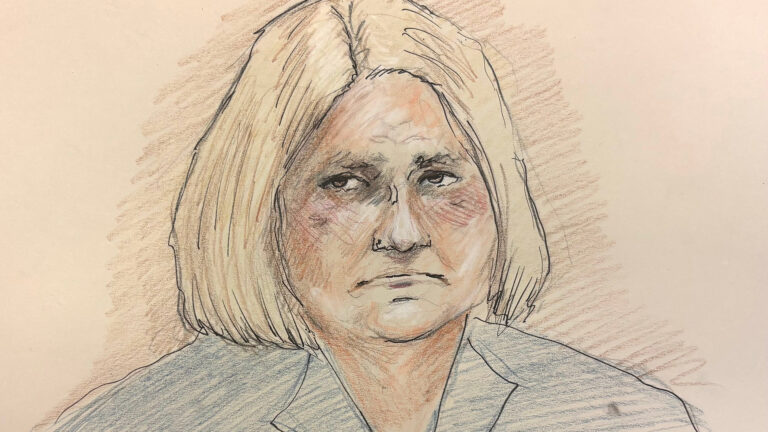
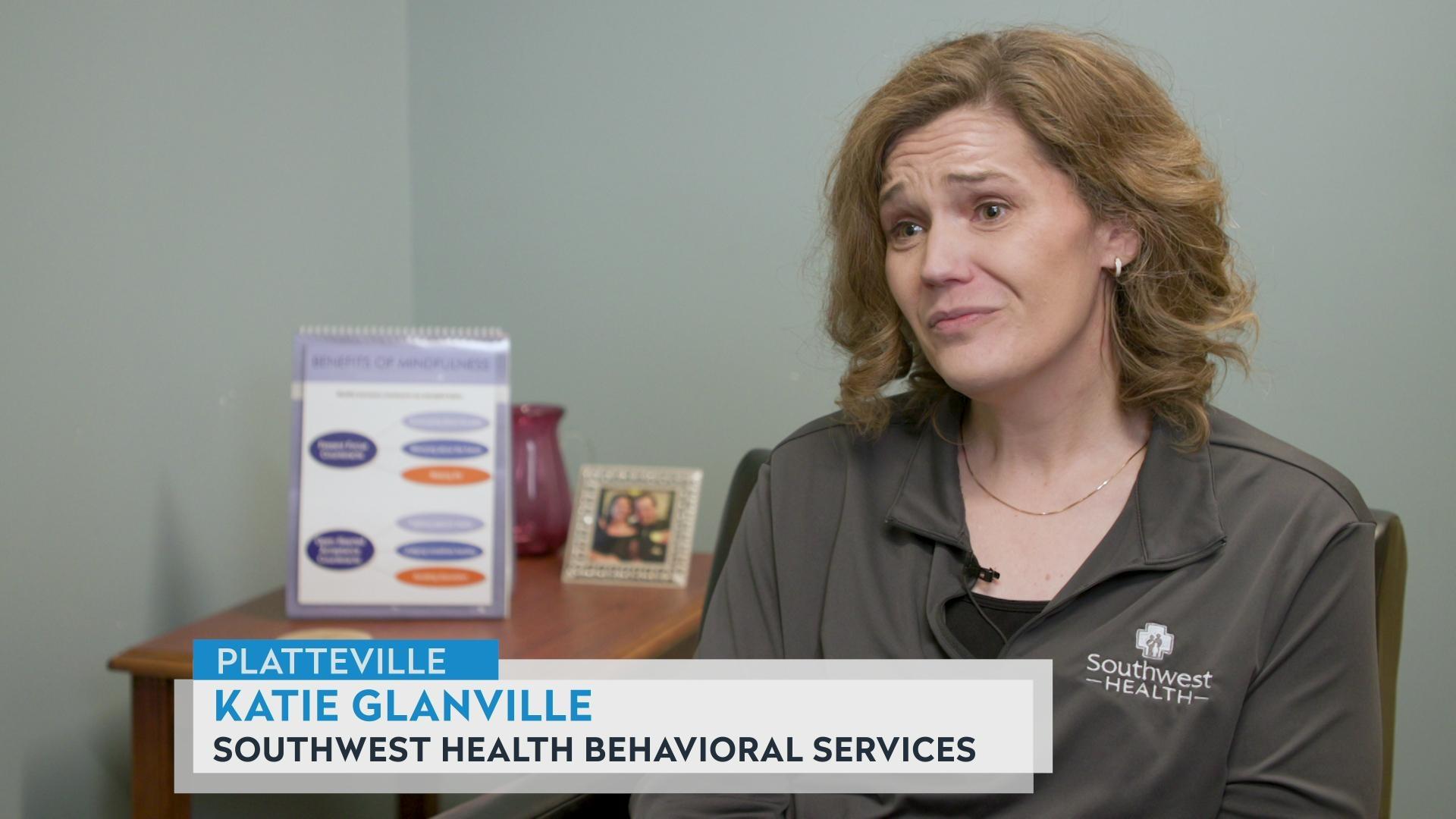






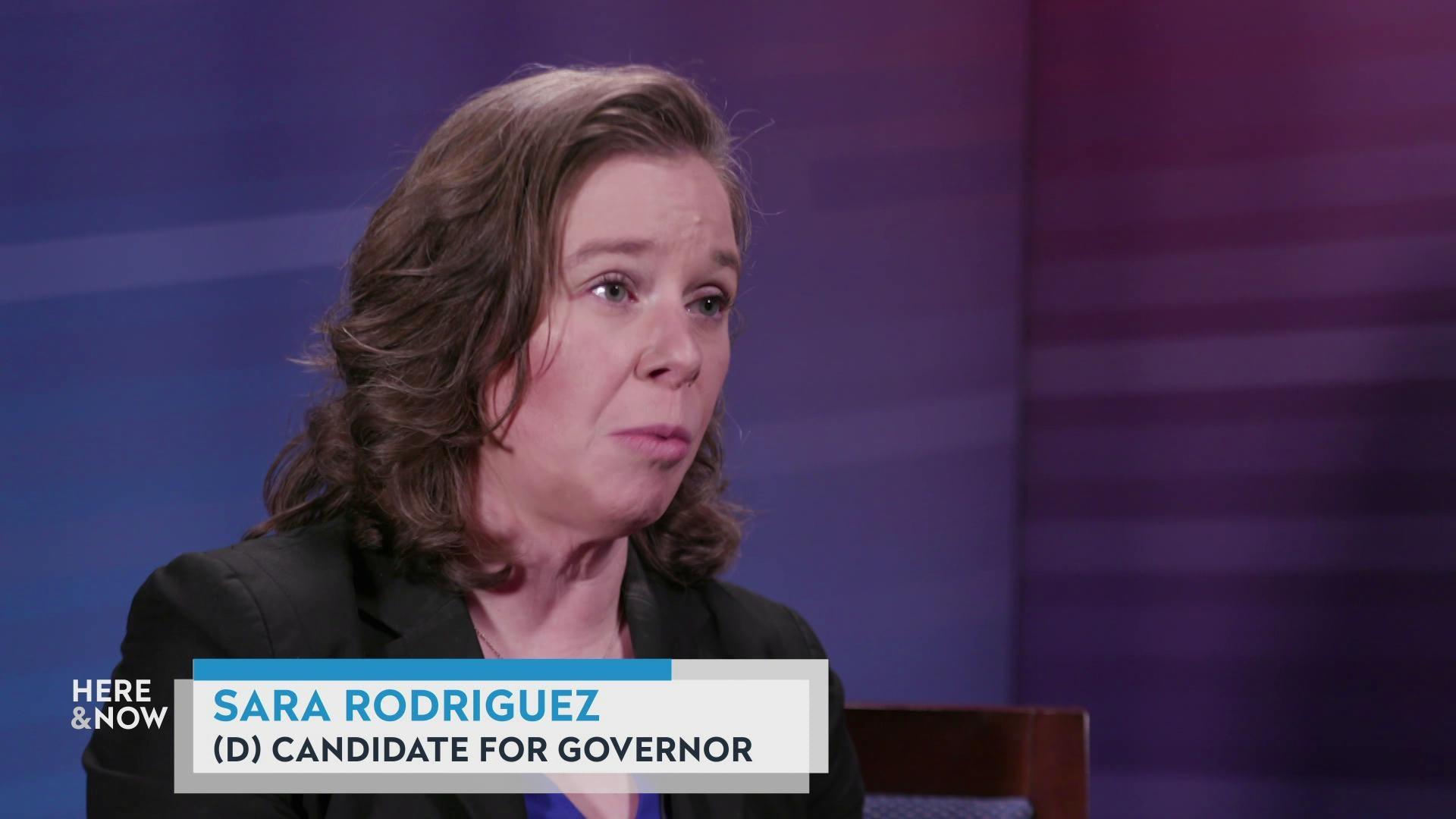
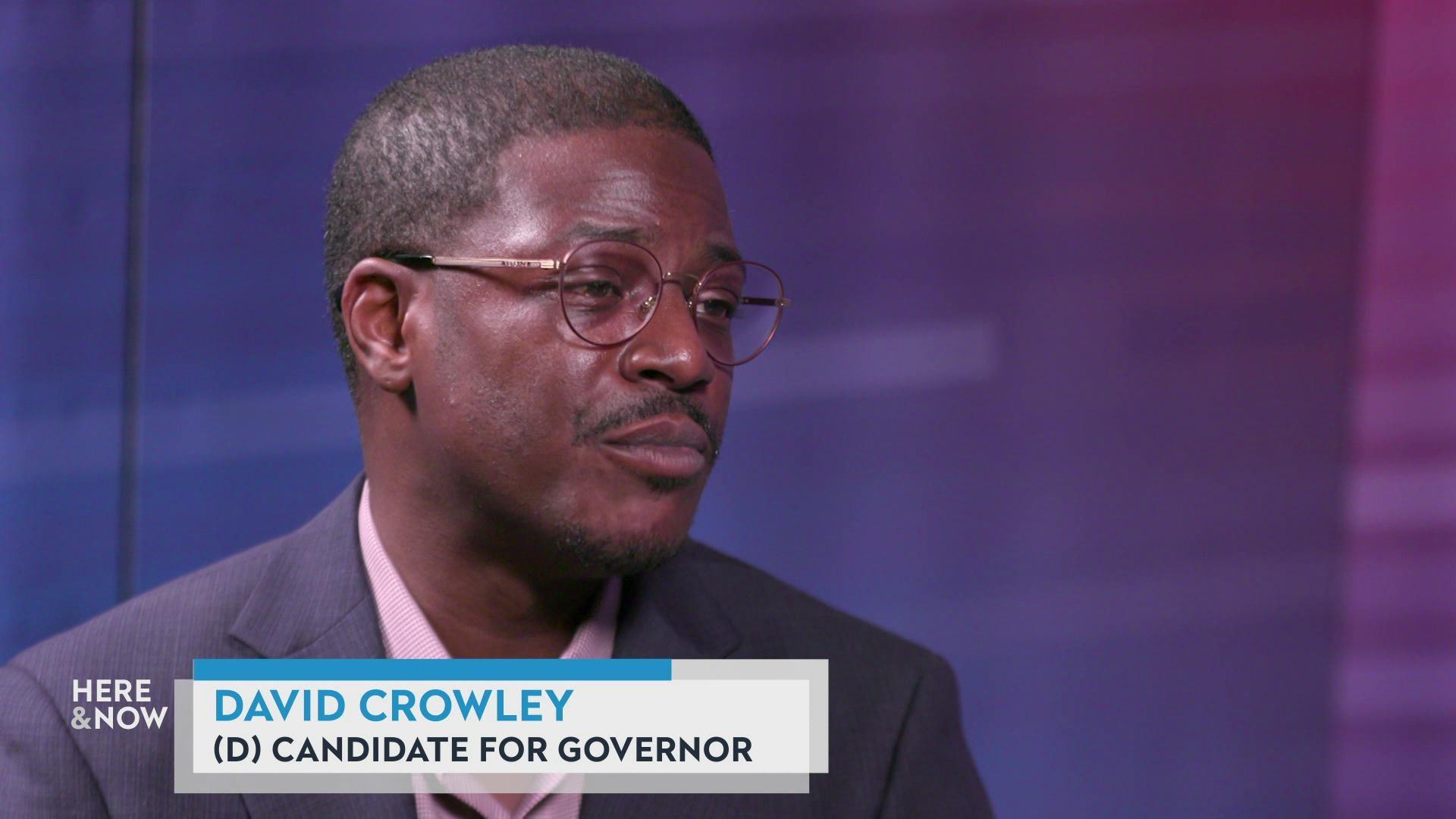
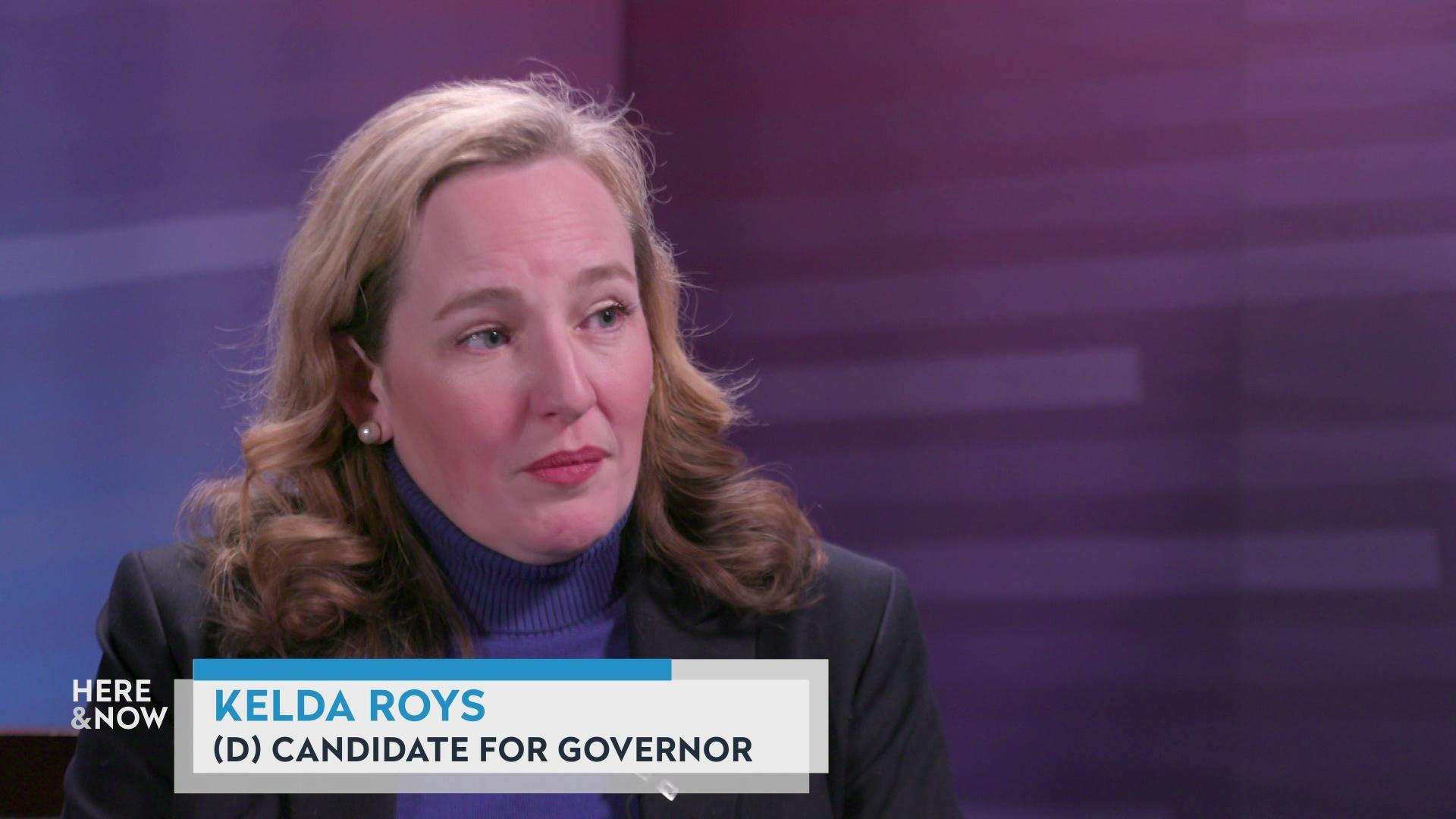


Follow Us